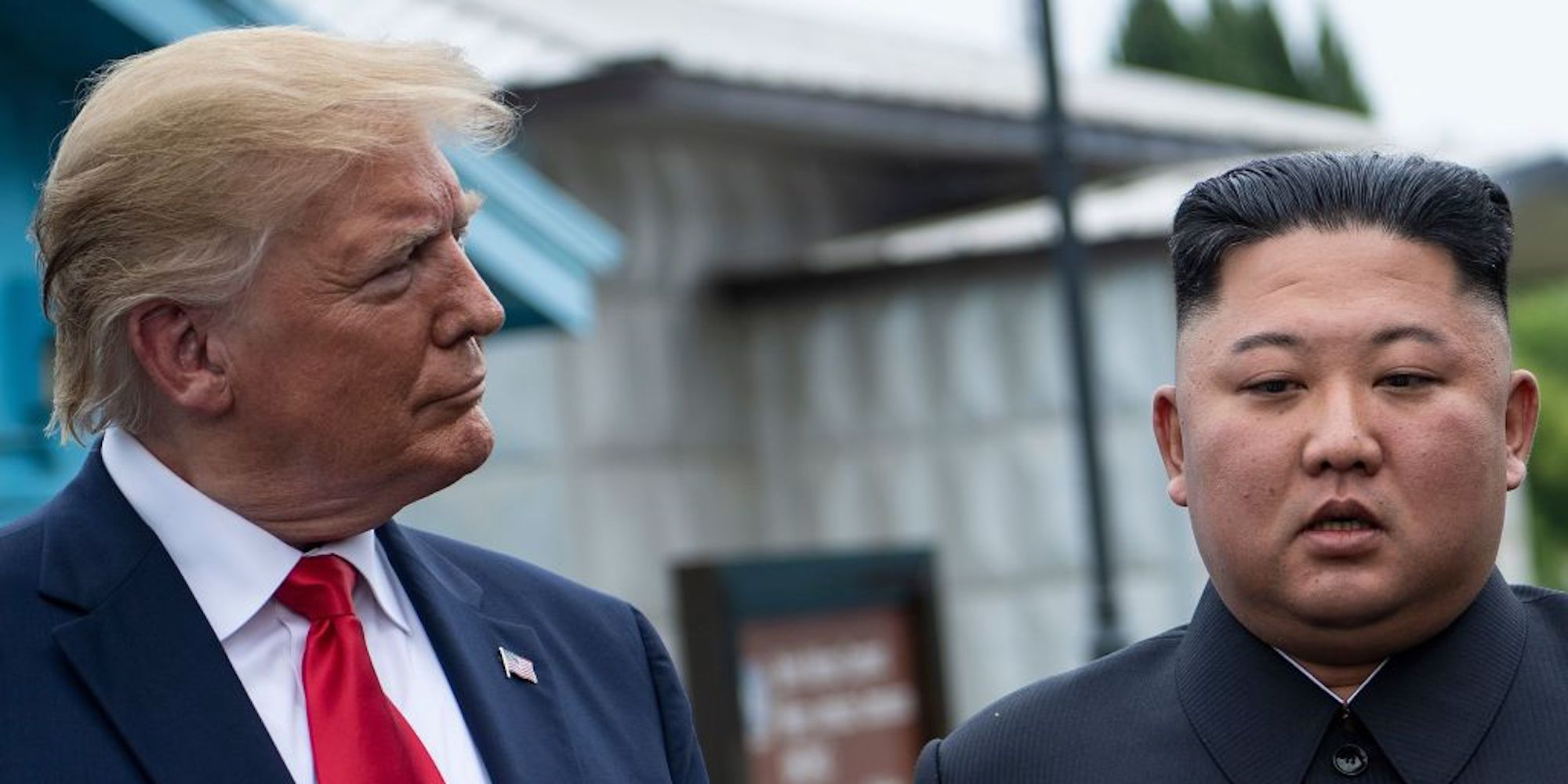- North Korea’s state-run news agency, KCNA, published an address from the country’s State Affairs Committee warning the US that it was running out of time to negotiate with Pyongyang.
- North Korean leader Kim Jong Un warned during his annual address to the country that he would seek a “new way” forward in North Korea’s relationship with the US should diplomatic talks fail.
- While the statement promises harsh consequences for actions North Korea sees as hostile, it doesn’t indicate what it will do to retaliate, although further testing of longer-range ICBMs and space testing are not off the table, according to one expert.
- Visit Business Insider’s home page for more stories.
On Wednesday, North Korea’s state news agency KCNA published a threat from the country’s State Affairs Commission, which oversees the government, warning the US that unless it pulls back military drills with South Korea and renews negotiations, there will be devastating consequences.
“We explicitly defined the joint military drill being planned by the U.S. and South Korea as a main factor of screwing up tensions of the Korean peninsula and the region out of control,” the statement reads.
“Despite our repeated warnings, the US and the South Korean side decided to push ahead with the military drill hostile to the DPRK at the most sensitive time,” the statement reads. North Korea has imposed a year-end deadline for the US to come up with a strategy for reopening dialogue between the two countries; US Secretary of Defense Mark Esper said “talks about talks” are in the works as he headed to South Korea on Wednesday, according to The Washington Post.
But while the statement is clear that North Korea is dissatisfied, it’s not clear what the consequences of that dissatisfaction are.
"What really may matter the most is they haven't said what they're going to do, or when they're going to do it, so his options are open," Joshua Pollack, Senior Research Associate at the James Martin Center for Nonproliferation Studies at Middlebury University, told Insider. "The vagueness of the warnings seems pretty eye-catching to me."
"They are leaving it to our imagination. Some people don't think that they have any plan at all, they're out of options and this is just huffing and puffing."
Pollack said that while it's possible that North Korea will start conducting increasingly longer-range missile tests, it's also possible that they will resume space launches, which the US sees as just a thinly-veiled method of testing ICBMs, but which is unlikely to ruffle many feathers within China, North Korea's most significant trading and security partner.
That course of action would also kill two birds with one stone by "splitting the diplomatic coalition against their missile program," Pollack said.
Over the past year, the US has pulled back on its publicity pushes surrounding joint exercises with North Korea in an attempt to continue conducting them without embarrassing Kim Jong Un. That approach, Pollack said, hasn't worked - hence Wednesday's strongly-worded, but still vague, message. Esper indicated on Wednesday that he was open to changes in military drills on the peninsula to support diplomacy, but did not indicate what those changes might be.
The statement precedes the annual New Year's speech North Korean leader Kim Jong Un gives - essentially North Korea's State of the Union - in which he outlines the year's priorities. At last year's New Year's speech, Kim focused on a "new path" in its relationship with the US should it decline to bring anything substantice to the bargaining table, which it has thus far failed to do. In April, Kim stated that he would give the US till the end of the year to decrease sanctions pressure on North Korea or otherwise make concessions.
The statement warns the US to "ponder over what it can do during the short last hours left," indicating that decisions about North Korea's course of action have already been made. The US has indicated that it is interested in opening up dialogue again, but the New York Times reports that North Korea has declined to say whether its accepted the US's offer, with North Korean negotiator Kim Myong Gil stating that his country was only interested in substantive offers from the US - not the previous offer to establish a liaison office between the two countries or officially declare an end to the Korean War.
Pollack also indicated that the message was meant as a justification for North Korea's unwillingness to engage in talks with the US, particularly after discussions in Sweden and Vietnam ended badly.
"It's an attempt to shield themselves from blame for the failure of this process," Pollack said.
Indications that a major announcment was upcoming were apparent when Kim and some of his retinue headed to Mt. Paektu for a snowy equestrian photo shoot in October.
The location is of great importance for the Kim family - it's the site that Kim Il Sung, the first leader of North Korea, served at a guerilla base against the Japanese, and an official visit often foreshadows major news.
"He's indicating that he feels Trump's promises have not held up. I think that's the theme here," he said. "This is the straw that's broken the camel's back, you're out of time.

